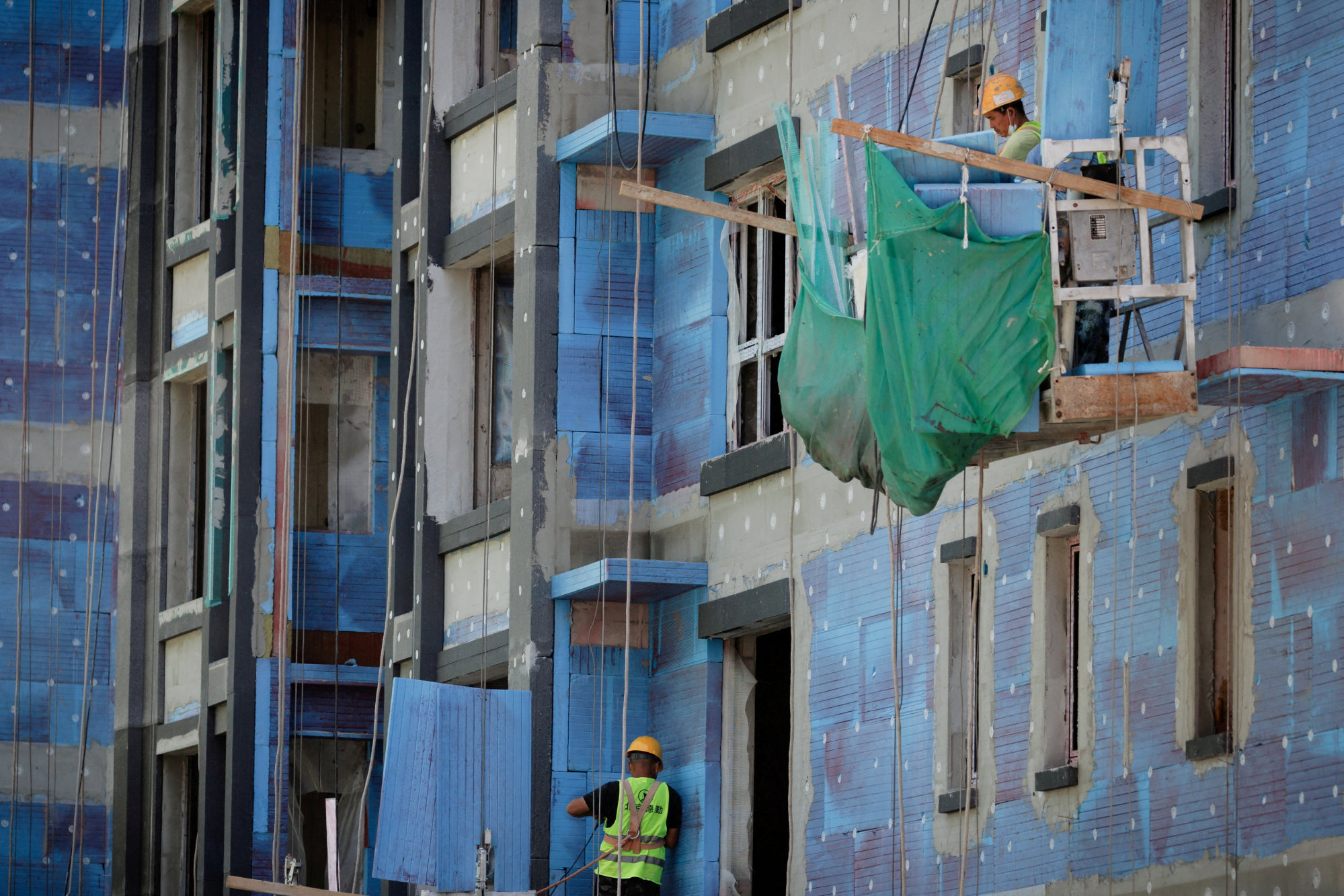Investors will be closely watching for guidance on how the reopening of the border with mainland China could affect the outlook for Hong Kong’s financial sector as the city’s biggest banks, including HSBC and Standard Chartered, unveil their annual report cards beginning this week.
Standard Chartered will be the first of the city’s three currency-issuing banks to update investors on its full-year performance on Thursday, followed by HSBC on February 21 and Bank of China (Hong Kong) next month. Family-run Bank of East Asia, Hong Kong’s largest independent lender, is also expected to report its annual results on Thursday.
HSBC, the largest of Hong Kong’s three currency-issuing banks, is expected to post a 87 per cent jump in pre-tax profit to US$4.97 billion in the fourth quarter, based on consensus analyst forecasts. The prior year’s quarter included US$500 million in credit impairments, including potential soured loans in its Chinese commercial real estate portfolio.
Do you have questions about the biggest topics and trends from around the world? Get the answers with SCMP Knowledge, our new platform of curated content with explainers, FAQs, analyses and infographics brought to you by our award-winning team.
Standard Chartered is expected to report a pre-tax profit of US$571 million in the fourth quarter, according to consensus analyst forecasts compiled by the London-based banking group. The lender reported a pre-tax loss of US$208 million a year earlier, with the prior-year quarter including US$285 in restructuring costs and a US$295 million impairment related to its investment in China Bohai Bank.
“Following China’s border reopening, both inbound and outbound travel has picked up from low levels, yet is still well below the 2019 level,” Citi analyst Yafei Tian said in a research note last week. “As cross-border activities recover in 2023, Hong Kong banks’ credit card fees would likely improve. There could be around 40 per cent upside in credit card fees for domestic Hong Kong banks should credit card fees return to peak levels of 2018. In addition, growth in wealth management fees could pick up as investor sentiment improves.”
The potential benefit from the reopening of the border comes as Hong Kong banks are facing a slowdown in the expansion of their net interest margins amid intense competition for deposits and as their prime rates hit a 15-year high in December, according to analysts.
“With interest rate expectations peaking, it will be more difficult for Hong Kong banks to substantially outperform the market again like last year,” Jefferies analyst Sam Wong said. “That being said, Hong Kong banks should also benefit from improved macro outlook and market sentiment upon reopening.”
Hong Kong’s economy is expected to grow by 3.9 per cent this year after contracting by an estimated 3.5 per cent in 2022, according to the International Monetary Fund.
Another area to watch for Hong Kong’s lenders will be the Chinese commercial real estate sector, which was under pressure for much of 2022. Beijing drafted a 21-point plan to aid embattled developers in January and has taken other steps to try to revitalise the property sector in recent months.

However, it could take some time for asset quality to improve in the commercial real estate sector and additional provisions may be necessary for Hong Kong banks’ loan portfolios in 2023, according to Citigroup. That said, the magnitude of these provisions is likely to be “materially lower”, the bank’s analysts said.
The property sector in general is expected to remain “weak” in China this year as concerns about higher unemployment and lower household income growth have led to a focus on savings over consumption, according to Moody’s Investors Service.
“The scrapping of the zero-Covid policy, which had disrupted property sales execution and development schedules, will have an uncertain impact on the pace of economic recovery,” Moody’s analysts Nishad Majmudar and Deborah Tan said in a February 1 research note. “Chinese banks also face worsening credit conditions, reflecting broader macroeconomic uncertainties that will affect the operating environment and asset quality, and will lead to deteriorating profitability.”

Standard Chartered took credit impairment charges of US$367 million in the first nine months of 2022 related to its China commercial real estate business, while HSBC took charges of about US$800 million in the same period related to its Chinese commercial real estate loan portfolio.
At the same time, investors may be seeking more clarity from Standard Chartered on its latest reshaping as CEO Bill Winters seeks to reach a long-standing target of 10 per cent return on tangible equity by 2024.
The bank previously said it planned to cut its expenses by a further US$1.3 billion last year and announced plans in January to explore the sale of its aviation finance and leasing business.
The move to potentially sell the aviation business came just days after First Abu Dhabi Bank (FAB), the Middle East’s biggest bank, said it had previously explored a potential offer for the emerging markets-focused lender, but was no longer doing so.
FAB never formally approached Standard Chartered, but Bloomberg reported last Thursday that it was still interested in a potential deal. On Friday, the Abu Dhabi bank reiterated that it was “not evaluating a possible offer” after Standard Chartered’s shares soared in London on Thursday following the Bloomberg story.

After publicly confirming in January that it had explored an offer, the United Arab Emirates-based bank is prohibited from making a formal bid for London- and Hong Kong-listed Standard Chartered for six months under British takeover rules. Bloomberg reported FAB may pursue a bid after the cooling-off period ends in June.
Standard Chartered has declined to comment on the takeover speculation.
Shares of Standard Chartered have risen 17 per cent in Hong Kong since the beginning of the year, driven in part by news surrounding FAB’s takeover discussions. The bank’s shares rose 1.3 per cent to close at HK$68.90 in Hong Kong on Monday, its highest level since January 2020.
Another concern among Hong Kong’s biggest banks will be any potential exposure to Indian conglomerate Adani Group, which has seen the shares of its listed arms drop sharply since a report by US-based short-seller Hindenburg Research in January accused the group of accounting fraud.
The Economic Times of India reported last week that Standard Chartered was one of several banks that had temporarily stopped accepting dollar bonds issued by Adani as collateral for margin loans, in part because of the volatility in the group’s bonds.
On Monday, Singapore’s DBS said it had an exposure of S$1.3 billion (US$975 million) to Adani, but the exposure is “tightly managed”. About S$1 billion is related to financing of a US$10.5 billion deal by Adani to acquire Holcim’s cement operations in India last year.
More from South China Morning Post:
- HSBC, Bank of China (Hong Kong) push digital payment services as border reopening promises e-commerce boost
- Year of the Rabbit 2023: HSBC, Citibank, Standard Chartered among the lenders offering staff generous ‘return-to-work’ lai see, gifts
- Chinese regulator approves JPMorgan, Standard Chartered fully-owned ventures on the mainland
- Standard Chartered to explore sale of aviation finance business, including Pembroke aircraft leasing unit
- First Abu Dhabi Bank considered potential bid for Standard Chartered
For the latest news from the South China Morning Post download our mobile app. Copyright 2023.





